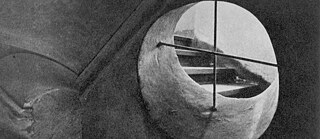Exaggerations Was Kafka a drama queen?

Be it his weight, health, father complex or doubting his own literary talent: Kafka had numerous “issues”, which he describes in vivid and emotional terms in his books, letters and diaries. Would it be fair to say that he sometimes perhaps exaggerated a little too much, and that in today’s vocabulary we would dub the Prague author a “drama queen”? Judge for yourself.
Was he exaggerating? At twenty-seven, Franz Kafka was a successful young man, a doctor of law with a respectable profession and social recognition. He had a small but established circle of friends (he spent some companionable times with his friend Max Brod in Prague or travelling in Italy), and love was not lacking in his life either. Nevertheless there were plenty of people he saw as a target of reproach: “This reproach applies to many people – namely my parents, some relatives, several visitors to our house, various writers, one cook in particular who took me to school for a year, a crowd of teachers, whom I have to press close together in my memory, or else one will escape me here and there but since I’ve packed them so tightly together, the whole again crumbles away in places, a school inspector, slowly walking passers-by, in short this reproach winds its way like a dagger through society.”
I died my whole life long …
What might constitute blatant exaggeration for one person is for another an artistic licence that serves to emphasise their own ideas and words. For instance, a good twenty years later Kafka wrote the following to his friend Max Brod: “I died my whole life long and now I will really die. My life was sweeter than other people’s and my death will be more terrible by the same degree.” No, he wasn’t threatening suicide, he was actually dramatising his dissatisfaction with his literary endeavours: “Of course the writer in me will die right away, since such a figure has no base, no substance, is less than dust …”Yes, these are all sentences, quotes and ideas that have been liberated from the context of Kafka’s life, and it would be a mistake to draw any fundamental conclusions from these fragments. However it is interesting that similar “dramatic exclamations” are a recurring theme throughout Kafka’s correspondence in particular. For instance: “If need be, I can live as I am,” wrote Kafka aged thirty to Felice Bauer, his fiancée at the time – in one breath confessing his feelings to her, yet at the same time dramatically pushing her away: “my rage turned inward, tormenting only by letter, but as soon as we lived together I would become a dangerous lunatic to be burned alive. The havoc I would create! Would have to create! And if I didn’t create it I would be more lost than ever, for it would be against my nature, and whoever happened to be with me would be lost.”
I’m getting fat …!
But it was more than just those dark existential cries: in Kafka’s diaries we also find evidence that he felt good about himself, or in fact he even appreciated himself: “... and even if I’m rather short and somewhat fat, I’m still appealing to many people, even girls. About that there’s nothing to say,” he wrote in the aforementioned year 1910 in his diary. “Just recently one of them said something very reasonable, ‘Oh, if only I could see you naked one day then you must be especially pretty and kissable,’ she said.” Nevertheless Kafka was subjectively very unhappy despite his objective beauty and appearance in general, and for this he placed the blame – you guessed it – with all the people who had been responsible for his education and upbringing.After all, physicality has always been a major topic for Kafka: “Despite insomnia and headaches I’m getting fat, not as fat as my director, but in suitably subordinate terms,” wrote Kafka on 20th July 1917 to his fiancée Felice Bauer. In this letter he also described honestly what made him so fat: “Yesterday’s menu: at 10.30 am – 2 x milk, honey, 2 x butter, 2 bread rolls; 11 am ½ kg cherries; midday smoked pork, spinach, potatoes, vanilla noodle pudding, bread rolls; 3 pm cup of milk, 2 bread rolls; 5 pm chocolate, 2 x butter, 2 bread rolls; 7 pm vegetables, salad, bread, Emmental cheese; 9 pm 2 cakes, milk,” after which he simply adds the comment “Now what?”. Now let’s assume that dearest Felice is happy about her fiancé’s appetite rather than worrying about his excess weight. After all she already had first-hand experience of Kafka’s exaggerations. As early as February 1913, barely six months after they first met, Kafka had warned her, maybe somewhat over-dramatically, of what she was to expect in her relationship with him: “I am a very unhappy human being and you, dearest, simply had to be summoned to create an equilibrium for all this misery.”
And all this, without exception, is to be burned
In Kafka’s correspondence with Felice alone (he wrote around 500 letters to her) there are numerous similar emotional exclamations. What Felice (probably) never found out was the main reason for their engagement, which Kafka wrote in his diary a year after they met: “Inability to endure life alone, which does not imply inability to live, quite the contrary, it is even improbable that I know how to live with anyone, but I am incapable, alone, of bearing the assault of my own life, the demands of my own person, the attacks of time and old age, the vague pressure of the desire to write, sleeplessness, the nearness of insanity—I cannot bear all this alone. I naturally add a perhaps to this. The connection with F. will give my existence more strength to resist.”Was he exaggerating, or did he just know himself too well? After four years – during which the two of them were engaged twice and split up twice – their relationship ended, and shortly after that Felice began to focus her concern on the equilibrium of happiness in the life of her new husband, banker Moritz Marasse.
And Kafka? He didn’t remain single, in the final few illness-plagued years of his life he found love and support with Dora Diamant. He got to know her in 1923 during a holiday on the Baltic coast, just a few months after he had written what was perhaps his most dramatic letter. It was addressed to his lifelong friend Max Brod, and in this letter the sick Kafka requested – and demanded – the destruction of his literary legacy: “Of all my writings the only books that can stand are these: The Judgment, The Stoker, Metamorphosis, Penal Colony, Country Doctor, and the short story Hunger Artist ... When I say that those five books and the short story can stand, I do not mean that I wish them to be reprinted and handed down to posterity. On the contrary, should they disappear altogether that would please me best. Only, since they do exist, I do not wish to hinder anyone who may want to, from keeping them. But everything else of mine which is extant … without exception and preferably unread … are to be burned, and I beg you to do this as soon as possible.”
As we know, nothing was burned, not even the very personal letters to Milena Jesenská, the destruction of which Kafka had specifically requested in the aforementioned letter to Brod. And thus today we are able to browse through all these very private postcards, diary entries and notes, which were certainly not intended for the eyes of others, and ask ourselves what sort of strange person Kafka was. And be amazed at how wonderfully good he was at exaggerating.


